
Registration for this year's Annual Institute is still open and games filling up fast! Take this fantastic opportunity to experience some of our most popular Reacting games in a controlled environment. Whether you're a Reacting Veteran or Newbie, the games featured at the Annual Institute will give you something to take away for your classrooms and offer an unforgettable experience.
Registration is open until May 19th, so don't wait! Register for the Annual Institute today!
Read on to learn more about the Nine Games and Newbie Workshop we're featuring at this year's Annual Institute!
Democracy in peril in ancient Athens!
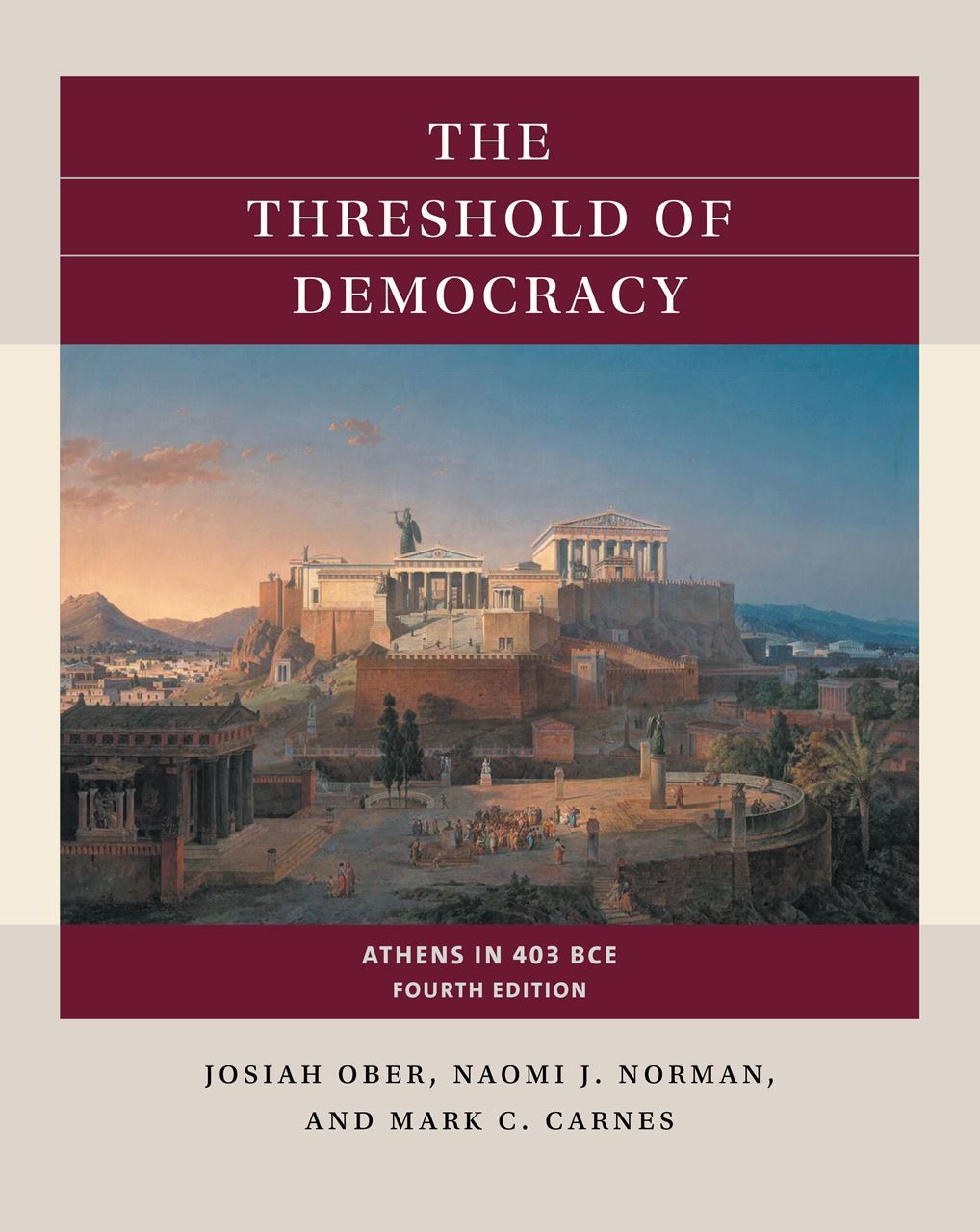
Step back in time to Athens in 403 B.C.E. and immerse yourself in the intellectual and political struggles that shaped debate in the Athenian Assembly. As Athens emerges from the devastation of war with Sparta, players must decide the fate of direct democracy and other issues such as the role of magistrates, the citizenship of slaves and foreign-born metics, and the restoration of its empire.
With primary sources from Plato's Republic and Pericles' Funeral Oration, Athens 403 BCE is a great way to introduce students to political theory, philosophy, and ancient history. This game is straight-forward and structured making it perfect for first-time instructors and first-year seminars.
Can you keep Augsburg independent and prosperous?
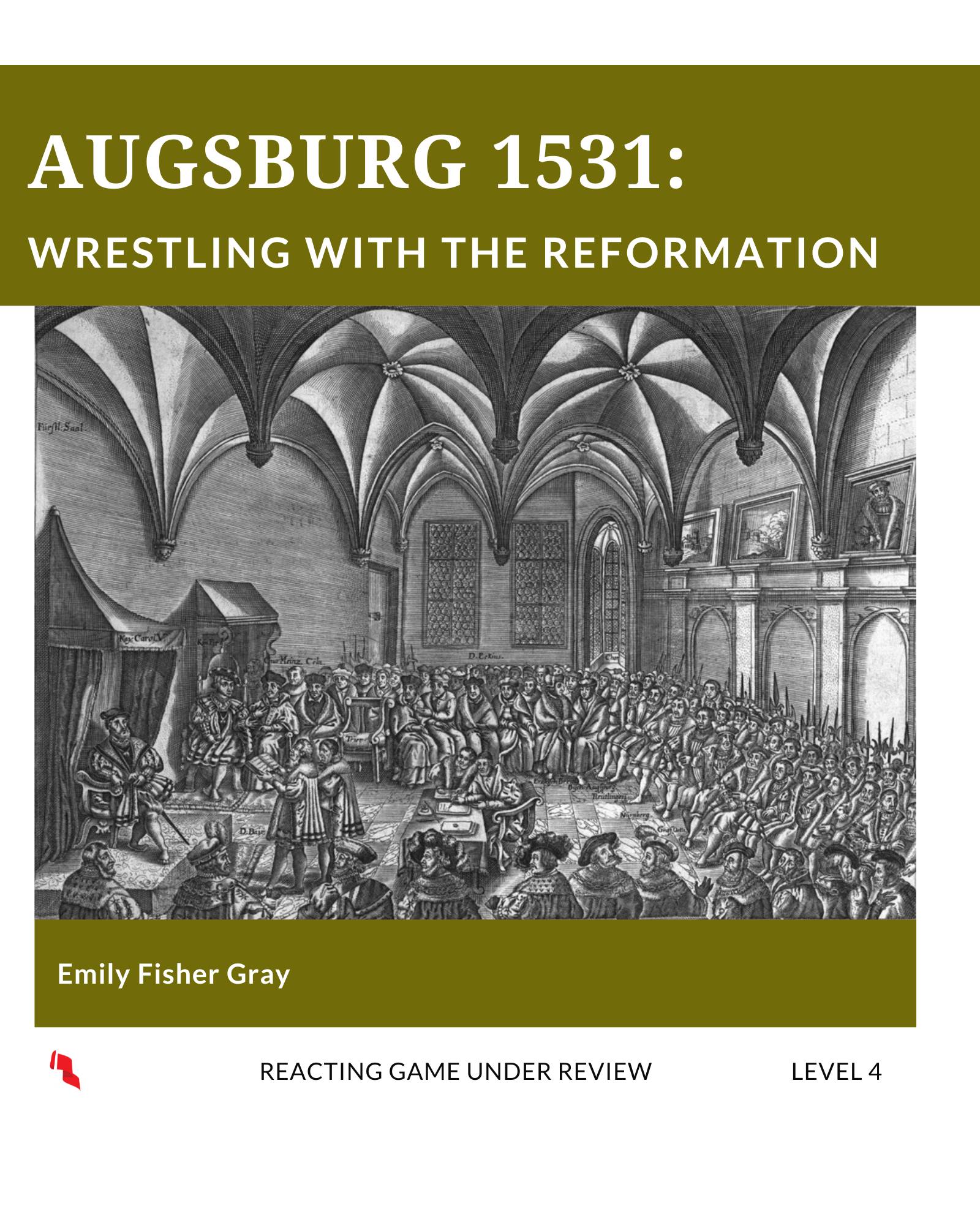
Religious, economic, and civic duties collide in this dynamic game that challenges players to balance the competing demands of citizens and foreign powers in the midst of the Reformation. As a member of the City Council of Augsburg, you'll have to navigate complex decisions that will impact the city's military defense, economic growth, and spiritual purity. With salvation and Augsburg's very survival at stake, players must work together to form alliances and make critical decisions to secure the future of the city. This game is perfect for students studying Cultural and Social History, Medieval History, Religion, Western Civ, or World History.
The Abolitionist Movement is at a crossroads!
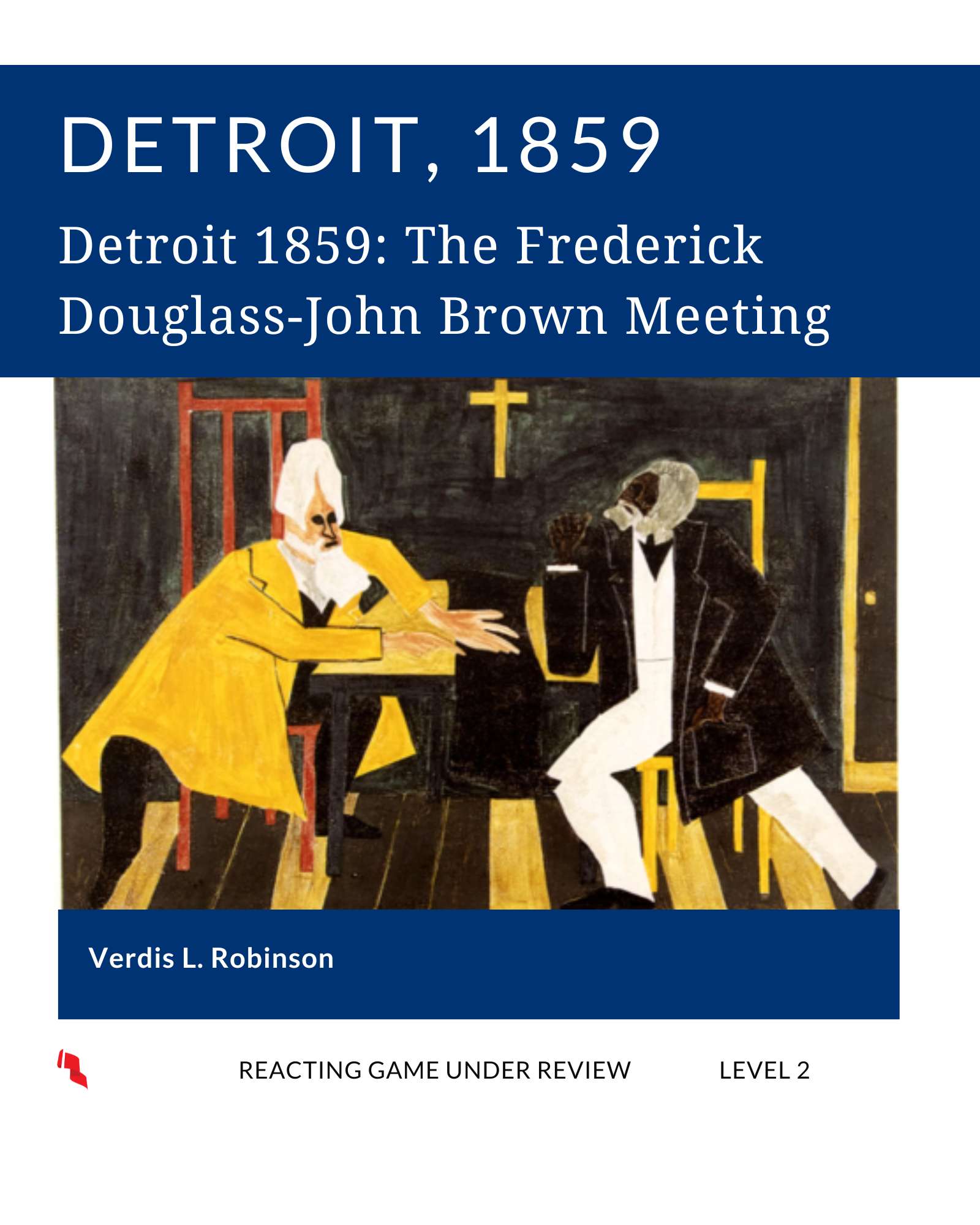
Step back in time to a critical moment in American History as the Abolitionist Movement reacts to recent bombshells including the Dred-Scott decision and Fugitive Slave Act. As you take on the role of a prominent abolitionist, you'll have the chance to engage in lively debates and discussions with other key abolitionists, including John Brown and Frederick Douglass. With the future of the Abolitionist Movement hanging in the balance, it's up to you to work together and find a new viable plan to end slavery in America.
Will you be able to come to a consensus, or will disunity impede your progress? Introduce your students to the debates that defined the abolitionist movement with this newly developed game that was recently featured at the GDC in 2022.
The deadliest food in your kitchen is in the sugar bowl...
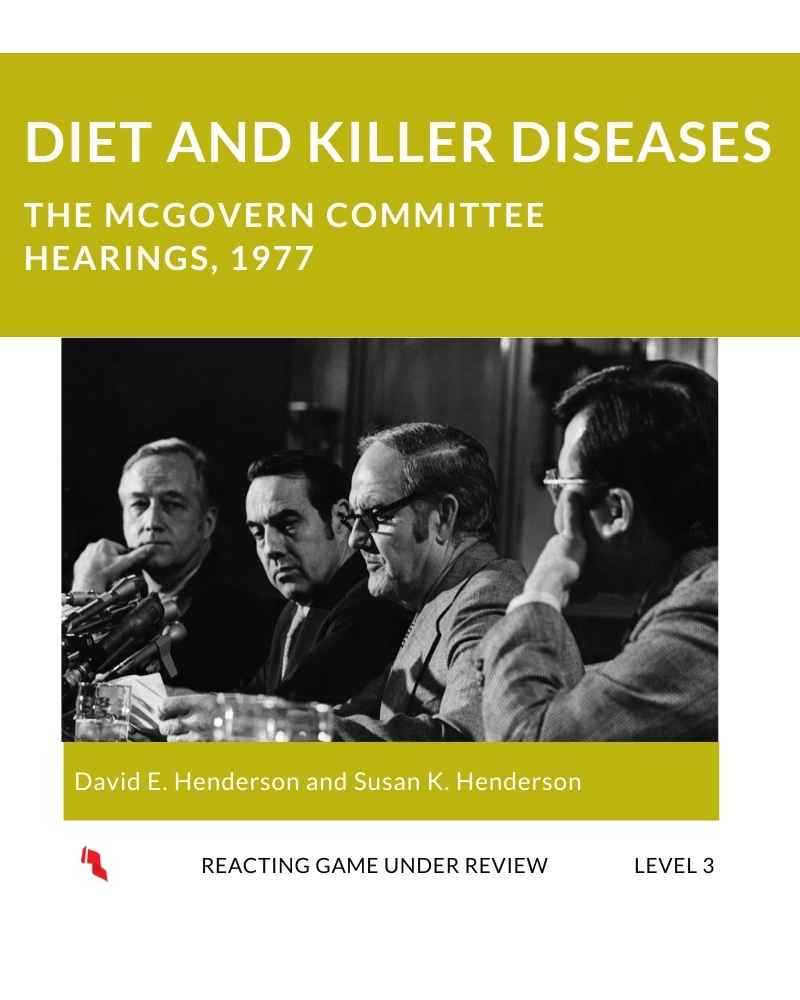
Why are they still selling non-fat yogurt and who got the idea it was a good thing? It all stems from the McGovern committee's findings in 1977. As US senators and doctors examine the scientific evidence on dietary fat and its impact on health. You'll explore how the committee's report was influenced by more than just scientific data and how the findings of it were amplified by journalists to change how we think of nutrition and health.
As you navigate factional, competitive, and collaborative player interactions, you'll consider issues of public health, science, journalism, and political lobbying. This game is perfect for those interested in the history of medicine and health, history of science and technology, political science and government, and STEM.
A New Century, A New America?

Immerse yourself in the socio-political changes that characterized the early 1900s. Labor, Suffrage, and Bohemian ideals clash in New York City in an attempt to forge a new America. With notable historical figures, including Emma Goldman, Charlotte Perkins Gilman, and W.E.B. DuBois, Greenwich Village Second Edition offers a rich overview of 20th century political movement. Students will attempt to persuade each other through lively debates, stinging op-eds, and artistic expression to gain influence and make sure their views are heard.
The all-new second edition comes with more structure "under the hood," while still providing players with considerable freedom to initiate debates and explore the ideas of the time. This game works especially well with classes that explore American political movements, labor, race, and gender. Assignments are designed to move beyond speeches and debates to get students more engaged, making it a great game for new and experienced Reactors alike.
Giving Peace a Chance in Northern Ireland.
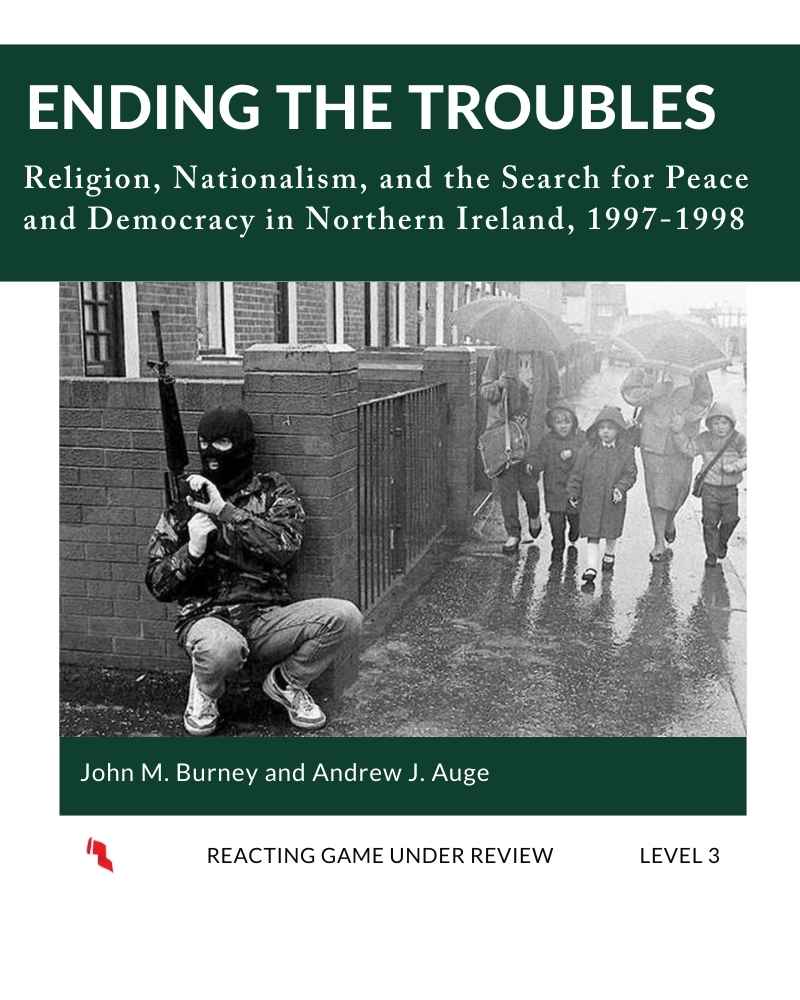
Step into the shoes of Northern Ireland's major political parties as they reconvene at the Multi-Party talks in 1997 to end 30 years of bloody conflict. Ending the Troubles offers a unique opportunity for history and politics majors to more deeply understand Irish history. It's also an effective way to get general education or honors students to learn the broad issues raised by the clash of civic and cultural nationalism in Modern Europe and the US. Students will find an effective way to explore strategies to achieve compromise between long warring communities. This game also explores the difficulties involved in designing a democratic system that can protect minority rights. Register today to avoid having fingers thrown at your door!
Revolution, counter-revolution, or reform in France.
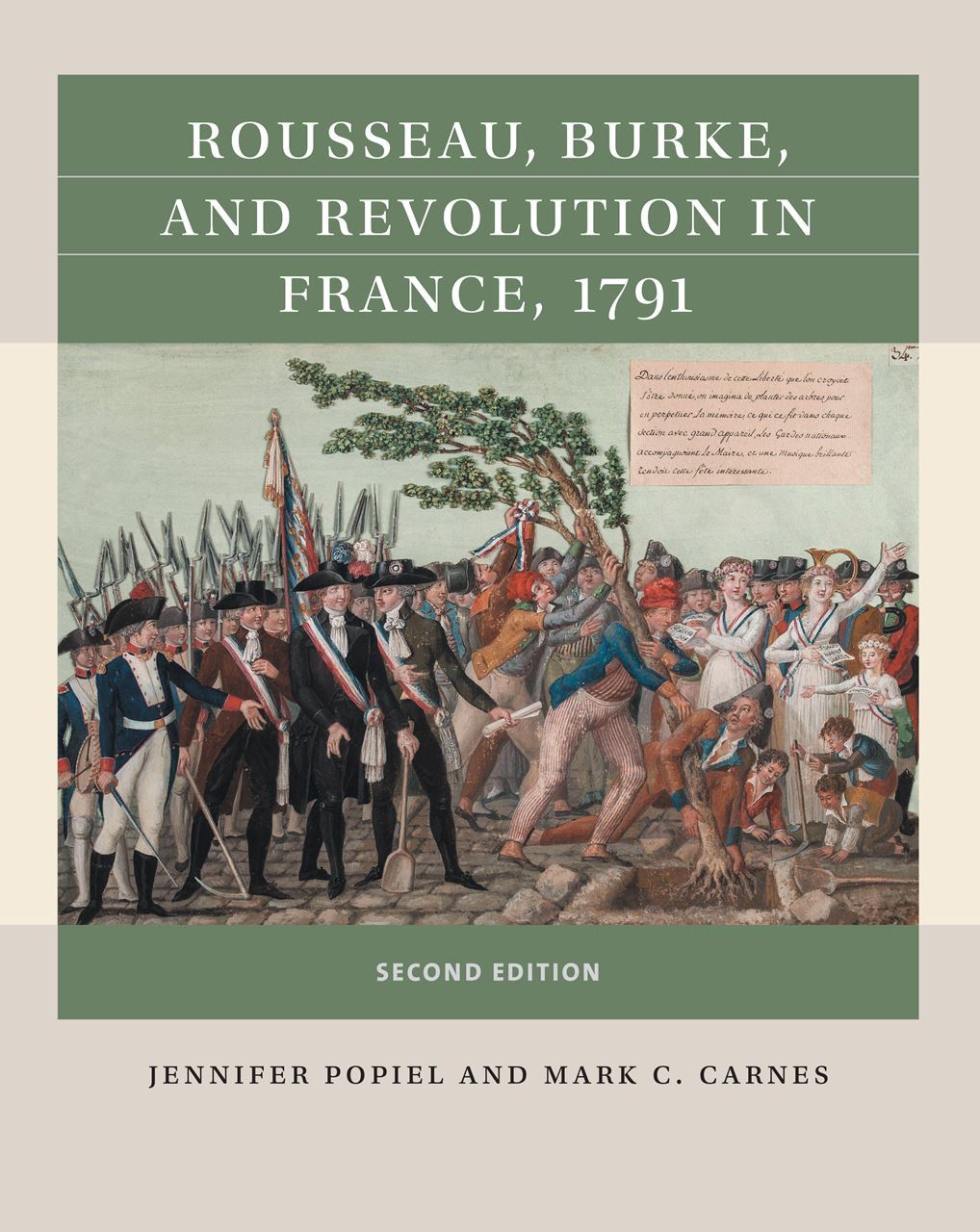
Students are tasked with the daunting task of writing a constitution for a revolutionary France. Along the way they will grapple with fundamental questions about individual rights, democracy, and the limits of governmental power.
This game offers a unique experience for students and an immersive introduction to Political Science, European History, and Philosophy. With themes ranging from political violence, combatting inequality, slavery and the role of the Church, there's something that can be used in any class. Primary sources include Jean-Jacques Rousseau's Social Contract and Edmund Burke's Reflections on the Revolution in France, which allow students to actually apply political theories to governance.
John Brown: slavery, liberation, and violence.
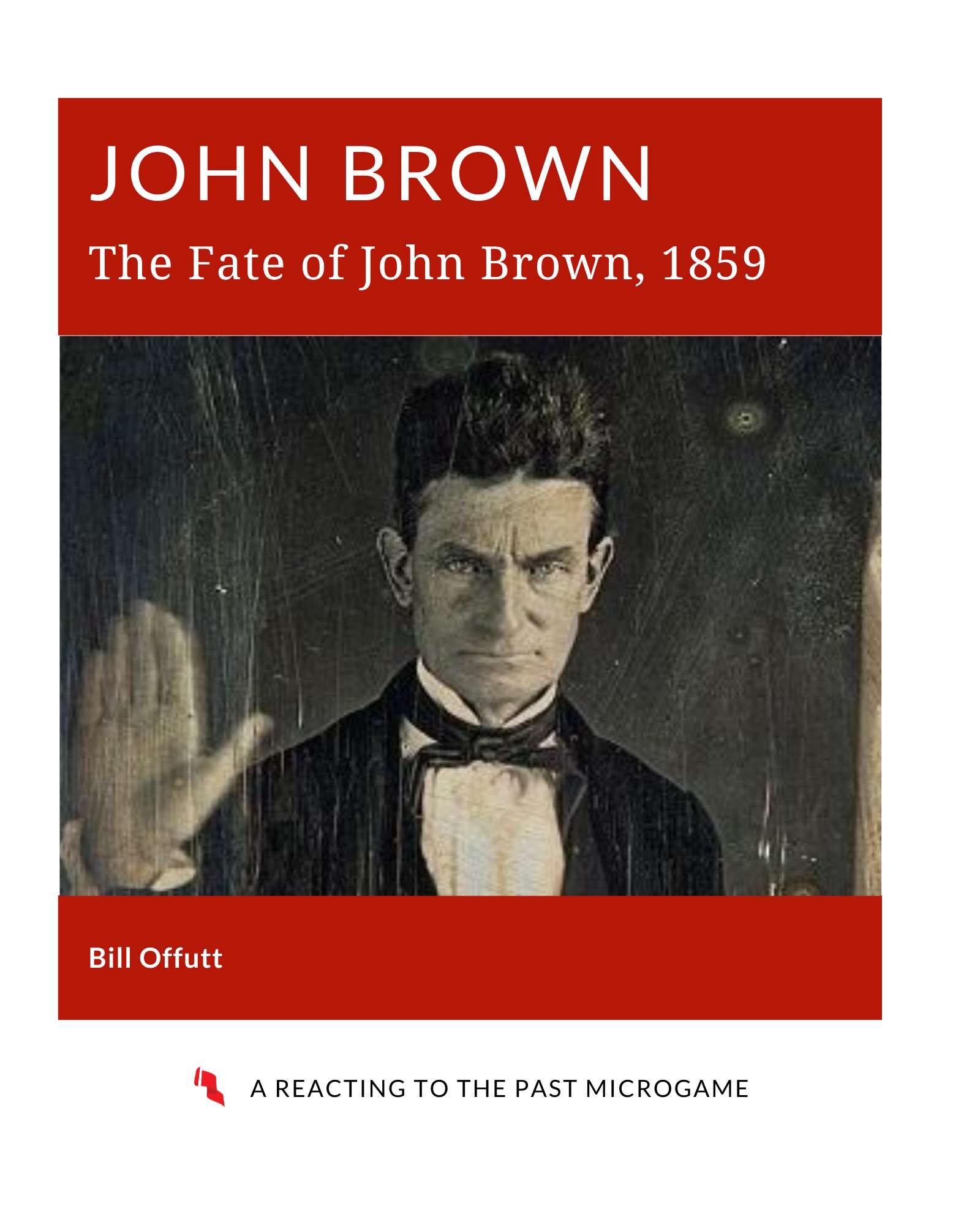
An immersive game that places students at a fictional conference debating whether to execute John Brown for his failed rebellion at Harper's Ferry. As players immerse themselves in this pivotal moment in history, they will confront enduring questions about the legitimacy of political violence and the balance between morality and the law. This short game is perfect for classes looking focus on slavery, the Civil War, and the abolitionist movement. As a week-long short game it also has the benefit of fitting into tight courses that are still looking for interactive ways to immerse their students in history.
Democracies don't die, they're murdered.
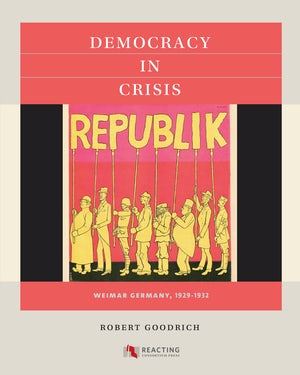
Step into the shoes of a delegate of the Reichstag and contend with the complex political landscape of Germany during the Weimar Republic. With factions and ideologies clashing for power, players must navigate the pressures of economic stress, political gridlock, and foreign demands while addressing street fights, trade union strikes, assassinations, and deadly polarization.
The complex issues addressed in this game makes it easy to adapt to different courses and have increasingly relevant real-world implications. Today, Democracy is under attack globally, sometimes insidiously, sometimes directly. The study of how a modern democracy is killed is surely of use for those who wish to defend one now and identify the dangers: gridlock, arbitrary executive orders, constitutional crises, corruption, party over country, and the demonization of opponents.
A great introduction to using Reacting in the classroom!
Are you relatively new to Reacting to the Past and wanting a curated experience to help you understand how to use Reacting games in your courses? This year's Annual Institute features a workshop dedicated to Reacting Newbies and designed to answer your questions and help prepare you for when you run your first game. Take part in a hands-on workshop series designed to walk you through the process of syllabus revision, assessment strategies, and curricular integration, so you'll feel fully confident when implementing Reacting to the Past. Learn from instructors who have used Reacting and share your questions and experiences with colleagues from across the country. This option is recommended for Reacting Newbies, and for cohorts from the same school.


